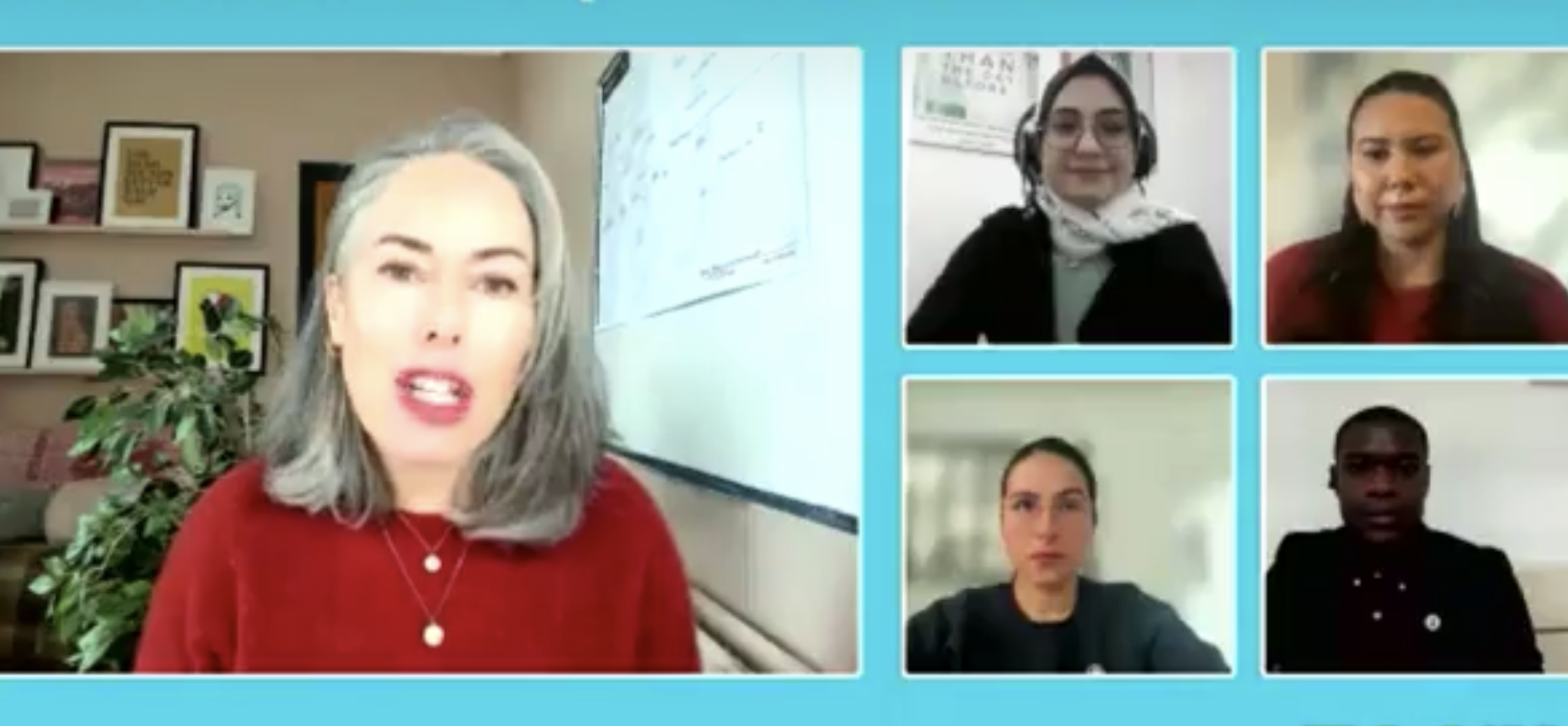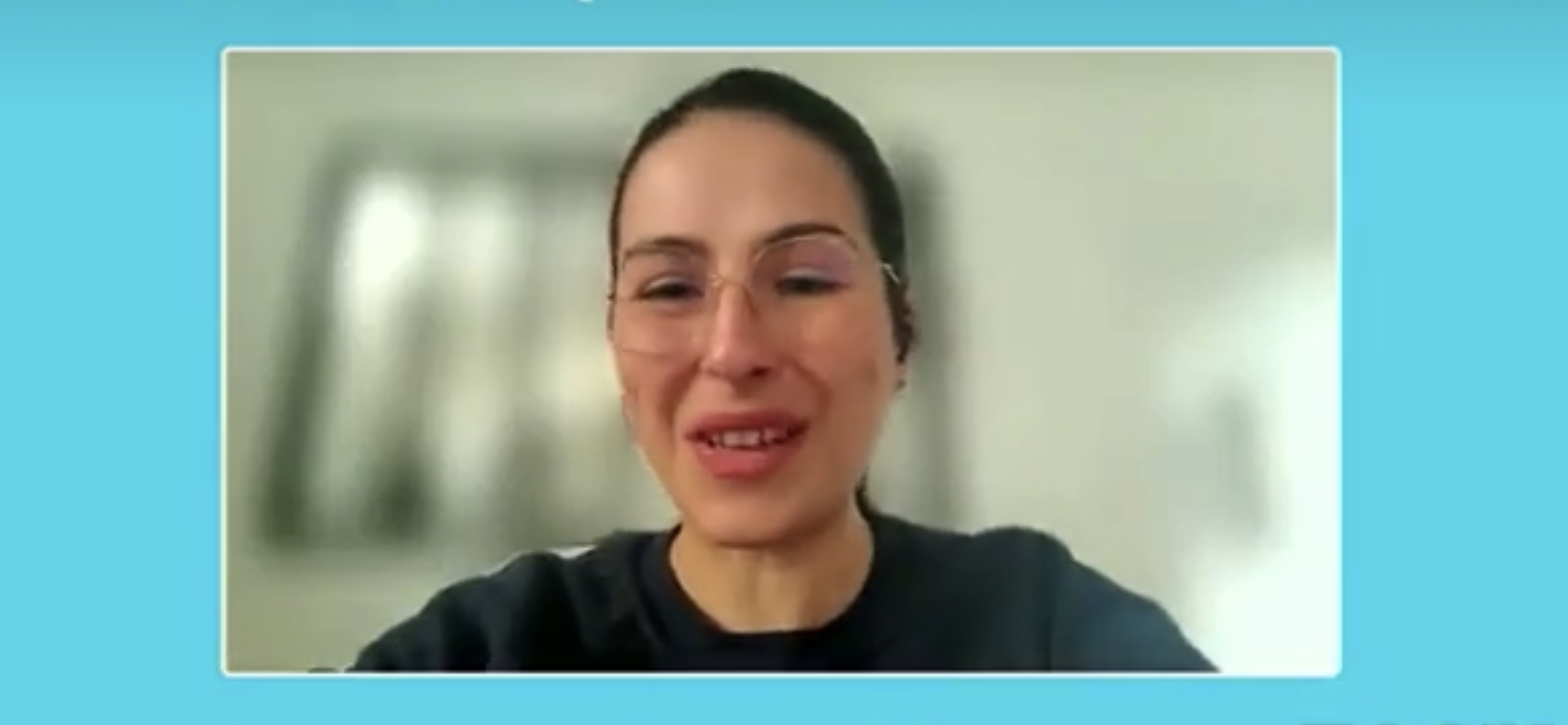“There is a lot to do!” This is what Noémie Plumier, our Legal Research Analyst, said when asked about the efforts we need to do when it comes to guaranteeing water and sanitation rights to vulnerable populations. Noémie joined the Global Policy Dialogue Series hosted by the UN Department of Economic and Social Affairs (UN DESA) on the 9th of March 2023 to share her perspective on the intersectionality of issues that youth and indigenous people face when it comes to safe access of water and sanitation.

Noémie was included in a diverse panel of young and indigenous leaders with Claire Forestier (on the left) who moderated the session, Roba Al Daour (upper center) the WASH Programme Manager for Oxfam, Afolayan Juwon Samuel (bottom right) from the World Youth Parliament for Water, and Makaśa Looking Horse (upper right) the Youth Leader Coordinator for the Ohneganos Water Research Project.
The panelists shared their experiences and work regarding water and sanitation for their organizations and communities. Emphasizing the challenges that they are facing. Main challenges identified were related to health risks, economic burdens (such as the loss of income and increased health costs), environmental issues and gender. Gender inequality was highlighted since women are usually the most affected by water inequity and it can limit their opportunities. Makaśa emphasized how the Six Nations studies developed for their communities show how women are obliged to spend a lot of their time thinking about how to access water and sanitation, to the detriment of their mental health and ecological grief.

Noémie shared some of the important work that we do in HR2W by talking about the link between human rights and water and sanitation. She explained how we use a framework methodology for assessing the recognition of water and sanitation rights in national policy and legislation, and developing recommendations. This captures the key elements of General Comment no.15 of the Committee of Economic, Social, and Cultural Rights and the framework principles of the human right to a clean, healthy and sustainable environment.
With International Women’s Day taking place the day before, the discussion was inevitably linked to SDG 5 and Gender Equality. Noémie noted the Secretary General declaration that we will not reach gender equality for 300 years, and emphasised how it is incredibly important to bring visibility to issues such as water quality, as “just because we don’t don’t see a problem it does not mean there isn’t one. We need to increase the access of information and the monitoring in order to improve these conditions. However, the solving of these issues is more complicated than it seems, we need to look at it from an intersectional point of view taking special care on how it may affect the more vulnerable groups, for example, for people with disabilities, indigenous communities, youth or women. The risks and challenged they face are different than others and this should not be dismissed. There are multiple layers to dealing with these issues and we need to face them altogether. “
Lastly, the Dialogue focused on solutions for water protection. The panelists talked about efforts such as prioritizing indigenous peoples rights since they are an essential actor in the protection of biodiversity, stopping pollution, protecting land and water, enforcing treaty rights, educating people to be responsible with water resources, and pushing governments on transboundary cooperation. Afolayan wisely shared that “when you throw something at a body of water, the water throws it back at you”. We need to continue to live by this and do our best to restore and protect our water ecosystems because they are essential to all types of life.
If you wish to watch the entire discussion you can do it: here.

